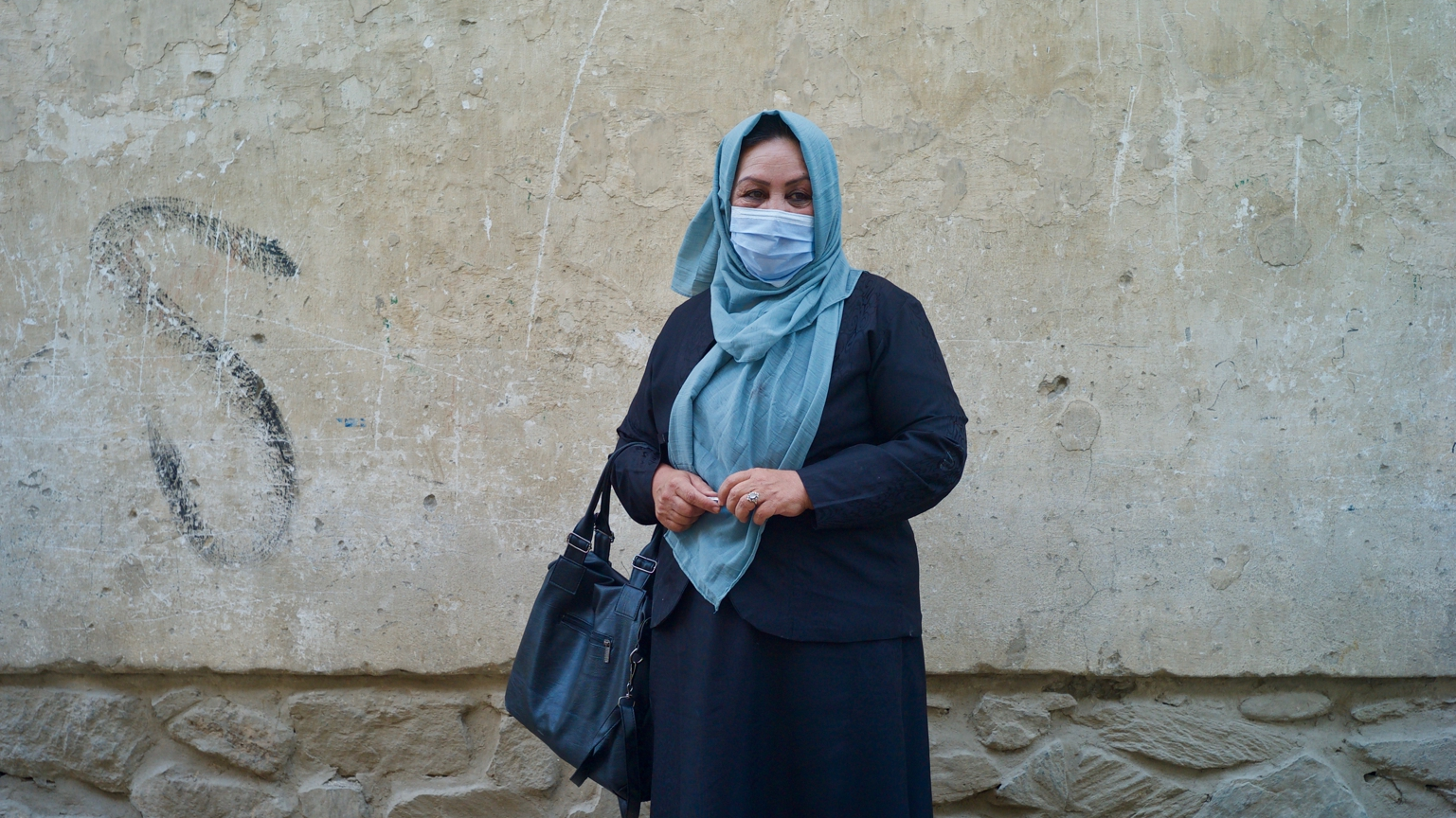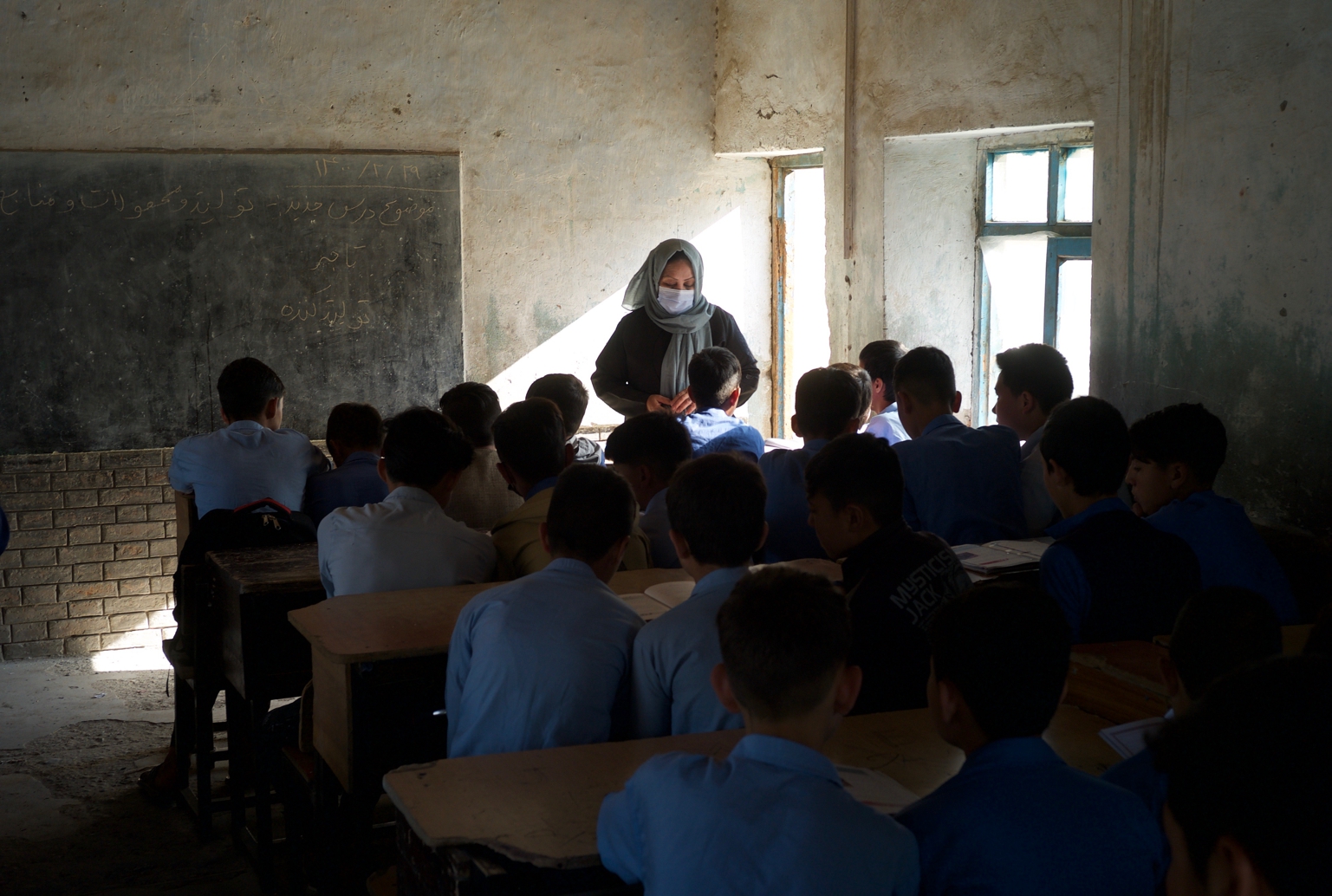
Nargis Turkmani, a teacher at the Abdul Rahim Shaheed High School in Kabul, Afghanistan. /CGTN
Nargis Turkmani, a teacher at the Abdul Rahim Shaheed High School in Kabul, Afghanistan. /CGTN
Nargis Turkmani has seen it all, the Soviet occupation, the Afghan civil war, the rise and fall of the Taliban and the U.S.-led war.
Throughout it all she's held firm to one idea.
"Whatever happens, we should build our country. So, I promise not to leave my country like this and to keep teaching our students to let them get an education," said Turkmani, a teacher at the Abdul Rahim Shaheed High School in Kabul's Dashte Barchi District, the same district where a school suicide attack in May killed 85 people and injured almost 150 more, most of them young girls.
"Many of my relatives were killed in the Sayed al Shuhada school bombing. We're concerned about our security and afraid. What if our school is attacked like the Sayed al Shuhada school?" said one of Turkmani's students seated in the front row of the class.

Nargis Turkmani teaches a class at the Abdul Rahim Shaheed High School in Kabul, Afghanistan. /CGTN
Nargis Turkmani teaches a class at the Abdul Rahim Shaheed High School in Kabul, Afghanistan. /CGTN
"We've lost many students in the 12th grade at the Kawsar educational course. That had a terrible effect on our students from the same grade, especially when they saw pictures of their slain schoolmates at the school entrance, schoolmates who were intelligent with a good spirit," said Turkmani, referring to the fact that students from her school had been studying for their university entrance exams at the Sayed al Shuhada school when the attack happened.
Attacks on Afghan schools were on the rise even before the U.S. announced a full withdrawal of troops by September.
Teacher workloads have expanded from math, science and literature to bomb searches.

Ghulam Haidar Hussaini, principal of the Abdul Rahim Shaheed High School in Kabul, Afghanistan. /CGTN
Ghulam Haidar Hussaini, principal of the Abdul Rahim Shaheed High School in Kabul, Afghanistan. /CGTN
"When we come to school, I instruct all the staff to check the school compound, inside and outside. We check the classrooms. We check underneath the bridges… and the canals," said Ghulam Haidar Hussaini, principal of Abdul Rahim Shaheed High School.
He said students and faculty members feel stress whenever they are at, or even near, the school.
"When students are in class and hear any sound from outside, no matter if it's a sound of a tire tube bursting, students immediately assume it's a suicide attack," Hussaini said.

A student studies at the Abdul Rahim Shaheed High School in Kabul, Afghanistan. /CGTN
A student studies at the Abdul Rahim Shaheed High School in Kabul, Afghanistan. /CGTN
Turkmani said a student stampede to the exit was recently sparked by a rumor that a suicide bomber had entered the school.
"People were falling over each other. It was horrible," she said.
"It's the security concern we all have now, more than all other concerns," said Mohammed, one of the students in Turkmani's class, adding, "I want to be a judge in the future in order to have equal justice all over Afghanistan."
It is a noble goal to counteract militants who see modern education as evil and young children as an enemy to be slain.

